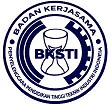Application of the Nawaz-Enscore-Ham (NEH) algorithm for flow shop scheduling in a timber factory
Abstract
Keywords
Full Text:
PDFReferences
R. Arora, T. Sowlati, J. Mortyn, D. Roeser, and V. C. Griess, “Optimization of forest harvest scheduling at the operational level, considering precedence relationship among harvesting activities,” International Journal of Forest Engineering, vol. 34, no. 1, pp. 1–12, Jan. 2023, doi: 10.1080/14942119.2022.2085464.
Y. Muharni, E. Febianti, Hanifa, and Arlianur, “Production scheduling of bar mill using the combination of particle swarm optimization and Nawaz enscore ham for minimizing makespan in steel company,” presented at the Exploring Resources, Process and Design for Sustainable Urban Development: Proceedings of the 5th International Conference on Engineering, Technology, and Industrial Application (ICETIA) 2018, Surakarta, Indonesia, 2019, p. 030006. doi: 10.1063/1.5112410.
Á. Caicedo-Rolón Junior and J. W. P. Llanos, “Production sequencing in a flow shop system using optimization and heuristic algorithms,” Gest. Prod., vol. 28, no. 1, p. e3886, 2021, doi: 10.1590/1806-9649.2020v28e3886.
M. K. Hajji, H. Hadda, and N. Dridi, “Makespan Minimization for the Two-Stage Hybrid Flow Shop Problem with Dedicated Machines: A Comprehensive Study of Exact and Heuristic Approaches,” Computation, vol. 11, no. 7, p. 137, Jul. 2023, doi: 10.3390/computation11070137.
F. Hnaien and T. Arbaoui, “Minimizing the makespan for the two-machine flow shop scheduling problem with random breakdown,” Ann Oper Res, vol. 328, no. 2, pp. 1437–1460, Sep. 2023, doi: 10.1007/s10479-023-05324-3.
D. Freud and A. Elalouf, “An improved procedure for solving minimum makespan on a flowshop,” in 2022 8th International Conference on Control, Decision and Information Technologies (CoDIT), Istanbul, Turkey: IEEE, May 2022, pp. 1630–1634. doi: 10.1109/CoDIT55151.2022.9804143.
N. Kurniawan and S. Suseno, “Optimasi Sistem Penjadwalan Produksi Dengan Metode Nawaz Enscore Ham (NEH) Pada PT Sinar Semesta,” Kolaborasi Mahasiswa dan Dosen, vol. 3, no. 1, pp. 24–33, Feb. 2023, doi: 10.30656/jika.v3i1.6001.
J. Yan, L. Li, F. Zhao, F. Zhang, and Q. Zhao, “A multi-level optimization approach for energy-efficient flexible flow shop scheduling,” Journal of cleaner production, vol. 137, pp. 1543–1552, Nov. 2016, doi: 10.1016/j.jclepro.2016.06.161.
Y. A. Paredes-Astudillo, V. Botta-Genoulaz, and J. R. Montoya-Torres, “Impact of learning effect modelling in flowshop scheduling with makespan minimisation based on the Nawaz-Enscore-Ham algorithm,” International Journal of Production Research, vol. 62, no. 6, pp. 1999–2014, Mar. 2024, doi: 10.1080/00207543.2023.2204967.
C. Mashuri, A. H. Mujianto, H. Sucipto, R. Y. Arsam, and G. S. Permadi, “Production Time Optimization using Campbell Dudek Smith (CDS) Algorithm for Production Scheduling,” E3S Web Conf., vol. 125, p. 23009, 2019, doi: 10.1051/e3sconf/201912523009.
F. Farizal, D. S. Gabriel, A. Rachman, and I. Rinaldi, “Production Scheduling Optimization to Minimize Makespan and the Number of Machines with Mixed Integer Linear Programming,” IOP Conf. Ser.: Mater. Sci. Eng., vol. 1041, no. 1, p. 012046, Jan. 2021, doi: 10.1088/1757-899X/1041/1/012046.
H. Fellahi, K. S. Siyoucef, and L. Sari-Triqui, “The combination of a NEH heuristic and an LP metric to solve a flow-shop scheduling problem taking into account energy consumption and production costs: a case study,” E3S Web Conf., vol. 336, p. 00028, 2022, doi: 10.1051/e3sconf/202233600028.
K. Kalinowski, C. Grabowik, W. Kempa, and I. Paprocka, “The role of the production scheduling system in rescheduling,” IOP Conf. Ser.: Mater. Sci. Eng., vol. 95, p. 012140, Nov. 2015, doi: 10.1088/1757-899X/95/1/012140.
Z. Lin, B. Jia, and X. Jing, “NEH-based heuristics for the distributed permutation flowshop with rejection and tardiness,” in Sixth International Conference on Traffic Engineering and Transportation System (ICTETS 2022), J. Zhou and J. Sheng, Eds., Guangzhou, China: SPIE, Feb. 2023, p. 108. doi: 10.1117/12.2668642.
B. De Araujo Carneiro, “A scheduling model for industrial process management : an innovative application of cross-laminated timber (CLT) manufacturing,” 2019, doi: 10.14288/1.0376212.
D. Wang and J. Zhang, “Flow shop scheduling with human–robot collaboration: a joint chance-constrained programming approach,” International Journal of Production Research, vol. 62, no. 4, pp. 1297–1317, Feb. 2024, doi: 10.1080/00207543.2023.2181025.
A. Mokhtari-Moghadam, P. Pourhejazy, and D. Gupta, “Integrating sustainability into production scheduling in hybrid flow-shop environments,” Environ Sci Pollut Res, Apr. 2023, doi: 10.1007/s11356-023-26986-3.
M. K. Marichelvam, Ö. Tosun, and M. Geetha, “Flow Shop Scheduling By Nature-Inspired Algorithms,” in Nature-Inspired Computation in Navigation and Routing Problems, X.-S. Yang and Y.-X. Zhao, Eds., in Springer Tracts in Nature-Inspired Computing. , Singapore: Springer Singapore, 2020, pp. 103–126. doi: 10.1007/978-981-15-1842-3_5.
Z. Friggstad et al., “Scheduling problems over a network of machines,” J Sched, vol. 22, no. 2, pp. 239–253, Apr. 2019, doi: 10.1007/s10951-018-0591-z.
M. K. Zanjani, D. A. Kadi, and M. Nourelfath, “A stochastic programming approach for sawmill production planning,” IJMOR, vol. 5, no. 1, p. 1, 2013, doi: 10.1504/IJMOR.2013.050604.
DOI: http://dx.doi.org/10.62870/jiss.v10i1.24503
Refbacks
- There are currently no refbacks.
 is supported by
is supported by








